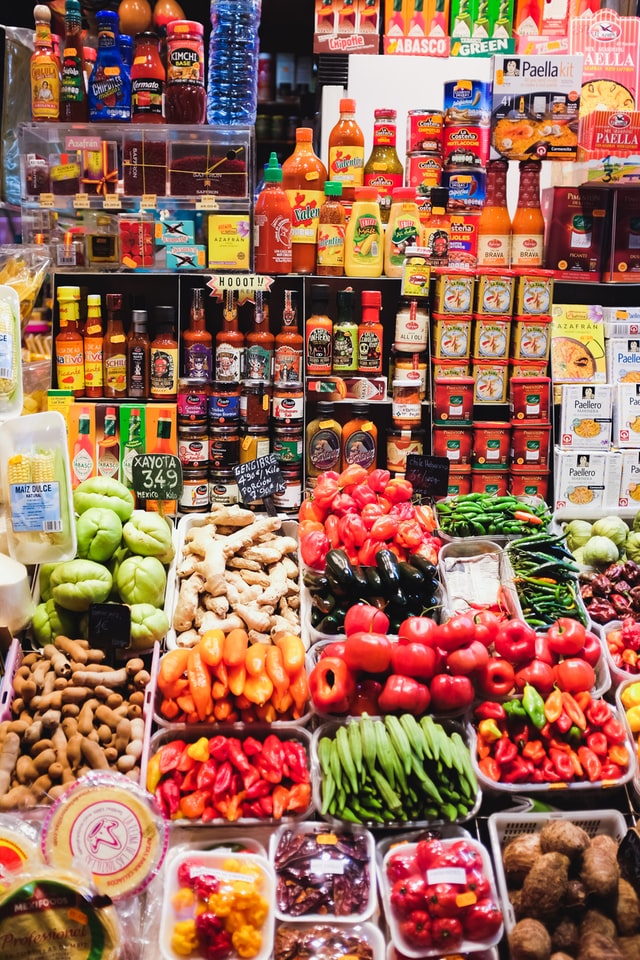New Zealand is one of the world’s leading food-producing nations. Its industries across the board focus on quality and value-added lines that are produced with the best possible concern for sustainability and environmental issues. As the country seeks out new market and continually works to develop existing ones, its agencies do a lot of background work to assist the country’s businesspeople.
A New Zealand Trade and Enterprise report on Spain has highlighted sustainability trends and issues in that market. The following are some key points.

Changing Dietary Trends in Spain
A 2019 Mediterranean Diet Foundation study revealed that the people of Spain are trading away from Mediterranean cuisine towards ready-made meals and a diet with higher meat content. 20% of Spanish children are obese – a result of more sedentary lifestyles, lack of cooking skills among parents, and lack of sleep. Spanish chefs, doctors, and nutritional experts are proactive in trying to educate the public on the benefits of Mediterranean cuisine and a healthy diet.
Just 4% of Spain’s total agricultural output is in organics, of which nearly 80% is exported. Domestically organic produce holds less than 1% of the total market share. The small organics retail sector in Spain is buoyant, with customers tending to highly price insensitive.
Spanish Environmental Concerns and Actions
Environmental issues are becoming an increasing concern among the Spanish. A recent study by marketing communication company Oak Group found that environmental issues comprise 10% percent of total information covered by the Spanish media. This is expected to increase to 15% during 2020. The report compares that with Germany, where 20% of media information is environment-related.
Spanish growers are taking action to promote more domestic fruit and vegetable consumption. In 2018 Spain exported over 8 billion fruit and vegetables, but outputs have hardly changed in 20 years. There are demands for government support in the fruit and vegetable sector through investment-promotion measures, and the adoption of EU measures against imports.
Spain is seeking to follow the Netherlands, Belgium, and the UK s examples in their investments in green technologies such as cogeneration, hydroponic crops, and bio-insecticides in recent years. These measures are enabling greater fruit and vegetable production, helping to reduce carbon emissions and energy consumption, and improving product quality.
Spain has invested heavily in wind power as a means of electricity generation. On an unusually windy day in November 2019, more than 50 percent of the country’s electricity came from wind turbines. For the 2019 year, the energy generated by the wind was estimated at 14%.
The Renault factory in Valladolid, Spain plans large-scale manufacturing of electric cars from 2020, also developing environmentally-friendly engines and other car parts. These initiatives will require a €500 million investment over the next 4 years, €370 million of which will be funded by the Government.
Greenpeace Spain has reported on the harmful environmental effects of urban solid waste (USW) incineration. Spain’s 10 USW incineration plants generate 1.7 million tons of carbon emissions a year. Only 13% of Spain’s waste is recycled, well below the European Union average of 22 percent.
In 2020 Spain will start implementing a “green landing” system, or Continuous Descent Approach at its airports, to reduce carbon emissions, fuel costs, and noise levels. Aircraft will descend from cruising altitude to runways by gliding the final 180 kilometers. Sweden and France are testing similar systems.
New Zealand’s Bilateral Trade with Spain
The New Zealand Foreign Affairs and Trade (MFAT) website states that in the year to December 2017, New Zealand exported goods to the value of NZ$240 million (FOB) to Spain. The main products were fresh fruit, mollusks, frozen fish, and sheep meat. In turn, New Zealand’s imports from Spain were NZ$270 million (CIF), mainly motor vehicles, olive oil, and medicaments.
Spain is New Zealand’s 7th largest export market for merchandise in the European Union. MFAT also comments that New Zealand’s export figures are likely to be understated due to transhipments within the EU. New Zealand and Spain have full diplomatic relations. NZTE has a representative stationed at the New Zealand Embassy in Madrid.…










Leave a Reply